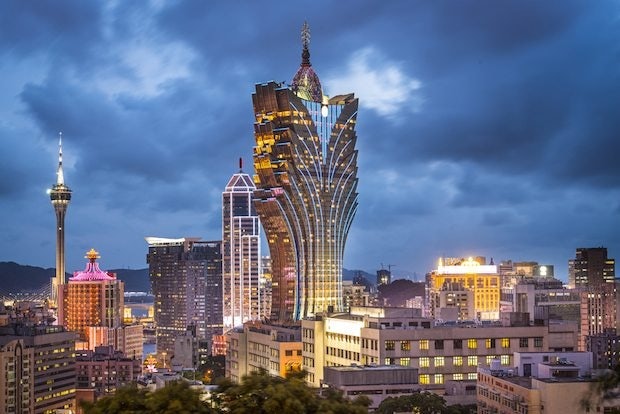
Despite indications that things may be turning around for Macau’s tourism industry, recent figures indicate that significant work remains be done to attract more mainland Chinese visitors and—perhaps more importantly—convince them to stay longer and spend more.
In August, the Government of Macau Statistics and Census Service showed a 14 percent increase in total arrivals, a 1.7 percent drop year-on-year, with same-day visitors falling 3.5 percent. Although average length of stay rose slightly (up 0.1 day to 1.1 days), the fact that this number has barely budged in recent years—and remains only about a third of the average length of stay in Las Vegas—can’t look great to Macau authorities.
The city continues to see mainland Chinese visits remain disappointing, dropping 1.7 percent in August.
Owing to weakness in the Chinese economy, the lingering effects of the anti-graft campaign, and a preference to simply travel elsewhere, interest in Macau among Chinese travelers has waned—leaving the city to the serious gamblers. This despite years of (expensive) efforts on the part of tourism authorities, hoteliers, luxury shopping venues and entertainment groups to attract Chinese tourist-shoppers and independent tourists.
According to a new study published in the International Journal of Marketing Studies, “An Analysis of Cultural Differences Effect on Tourist Behaviour in Macau,” Macau will continue to see its promotion of non-gambling activities struggle to gain traction. The report finds that Macau remains a city for hardcore mainland gamblers, visiting from China to head to more than one casino and gamble for serious money.
Compiled by researchers Xi Li, Anwei Yi and Jian Ming Luo, the report is based on responses from 250 questionnaires answered by tourists at the Macau airport and ferry terminal, and who stayed in the city for more than 24 hours.
As the authors put it, “Chinese like to experience more than one casino [in Macau]; this result is supported by previous studies, that showed that most Chinese would like to visit three or more casinos during their traveling to Macau.”
This “promiscuous” casino behavior—clearly, most visitors have little loyalty to a single casino brand—an area of strength among Las Vegas casinos, which extend plenty of perks and loyalty programs to U.S. gamblers—shows that the short stays of Chinese gamblers in Macau remain a massive challenge for gaming companies and hotels. The compressed timeframes of mainland Chinese gamblers, many of whom are just in for a span of a few hours or a day at the most, mean they’re in and out, then off to the next casino before they have time to take in a show or grab dinner.
The results of Li, Yi, and Luo’s study can’t be good news for tourism professionals who have worked hard in recent years to turn Macau into a shopping and cultural destination for mainland Chinese travelers. While Macau fared not-so-badly this Golden Week, with arrivals from mainland China rising 7 percent, this pales in comparison to last year’s 17 percent increase in visitation over the holiday.
This will certainly remain the case until Macau can move beyond the unsustainable VIP model that sent its gambling industry into the stratosphere over the past 10 years. According to a recent report by Sanford Bernstein, Macau’s VIP market is made up of about 120,000 gamblers, dominated by 5,000 to 20,000 “whales.”
However, the report finds that the collapsing VIP market has happened too quickly for the mass market to sufficiently occupy the vacuum. Much of this is due to delays in construction of Macau’s light rail and the Hong Kong-Zhuhai-Macau bridge, and a lack of hotel rooms—which continues to be addressed by the ongoing $20 billion Cotai Strip development project.
The report also finds that recent regulations like a smoking ban—which doesn’t exist in neighboring gaming hubs in the Philippines, Cambodia, and Vietnam—are crimping the growth of Macau’s mass-market.
That said, Bernstein does remain cautiously optimistic about Macau’s long-term prospects, provided its mass-market industry can remain an area of serious focus. The report estimates an addressable mainland Chinese consumer market for Macau of 260 million people with annual incomes of more than US$15,000. Bernstein notes that it expects income growth to grow the addressable market by 10 percent per year.
Despite this optimism, quite simply, until Macau can give Chinese tourists—who now have (relatively) easy 10-year multiple-entry U.S. visas, much cheaper trips to Japan and South Korea, and Schengen “Credit Visas” at their disposal—a compelling reason to stick around, arrivals and length-of-stay will struggle to break out of their current rut. Currently, mass-market tourists are enticed more by shopping and experiences in other countries, which are now within their price range, owing to good online deals, and see Macau and Hong Kong as a relative afterthought.
The ball remains in Macau’s court to turn that around, and promote the city as a colorful, exciting, and worthwhile place to visit—for more than a day.